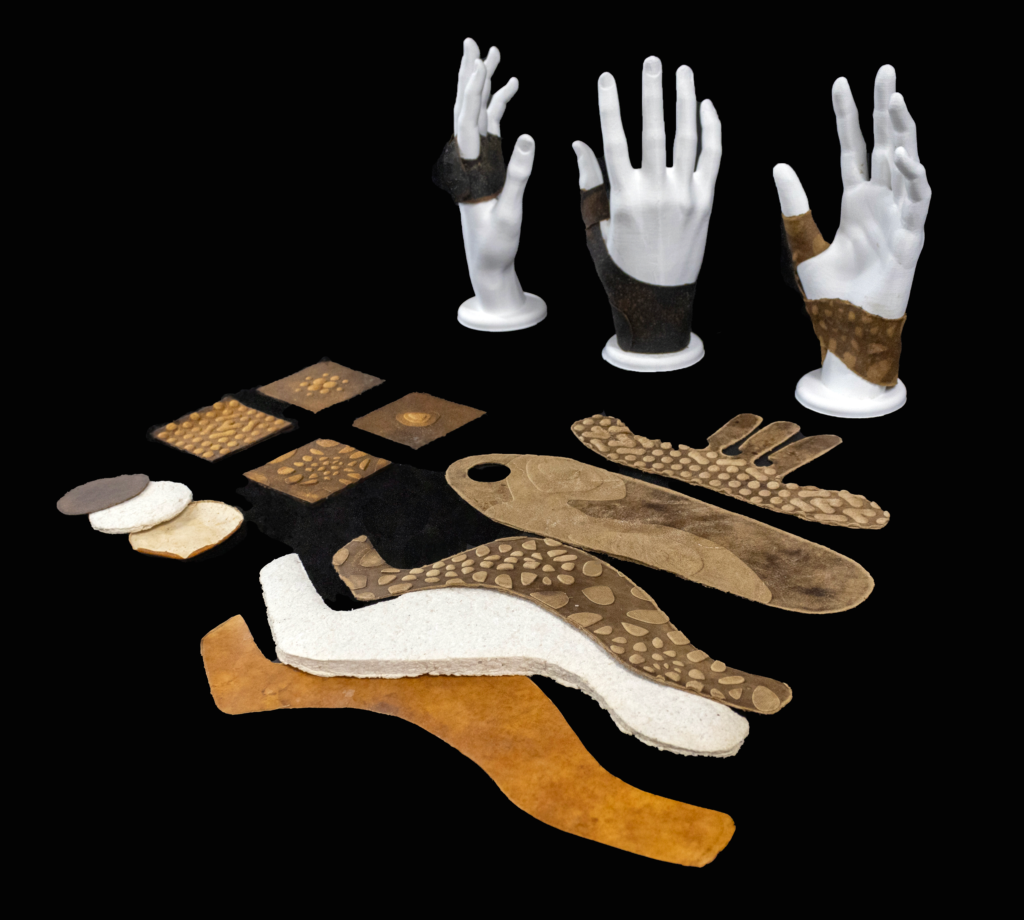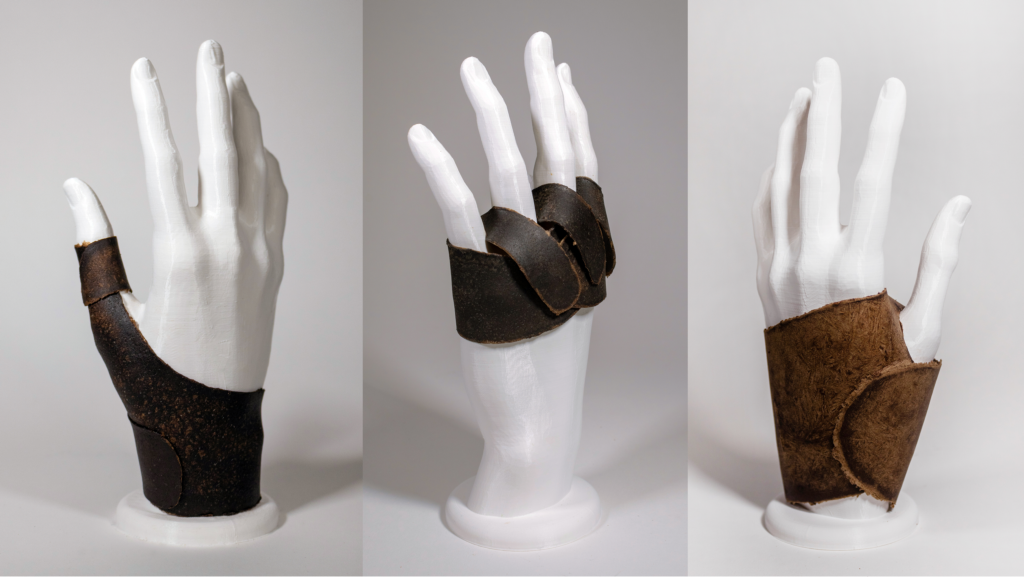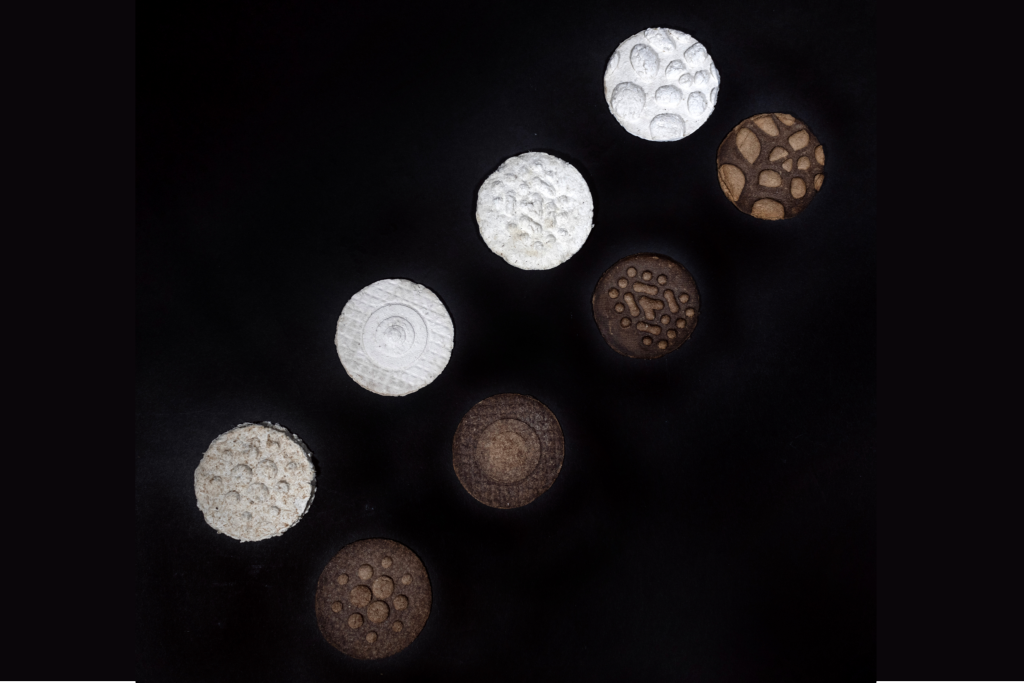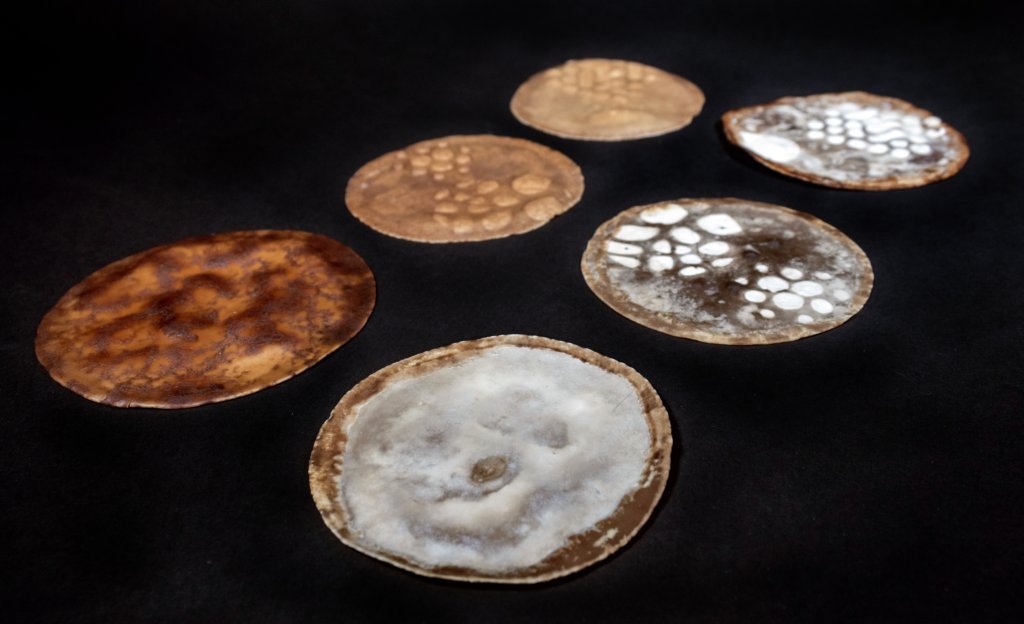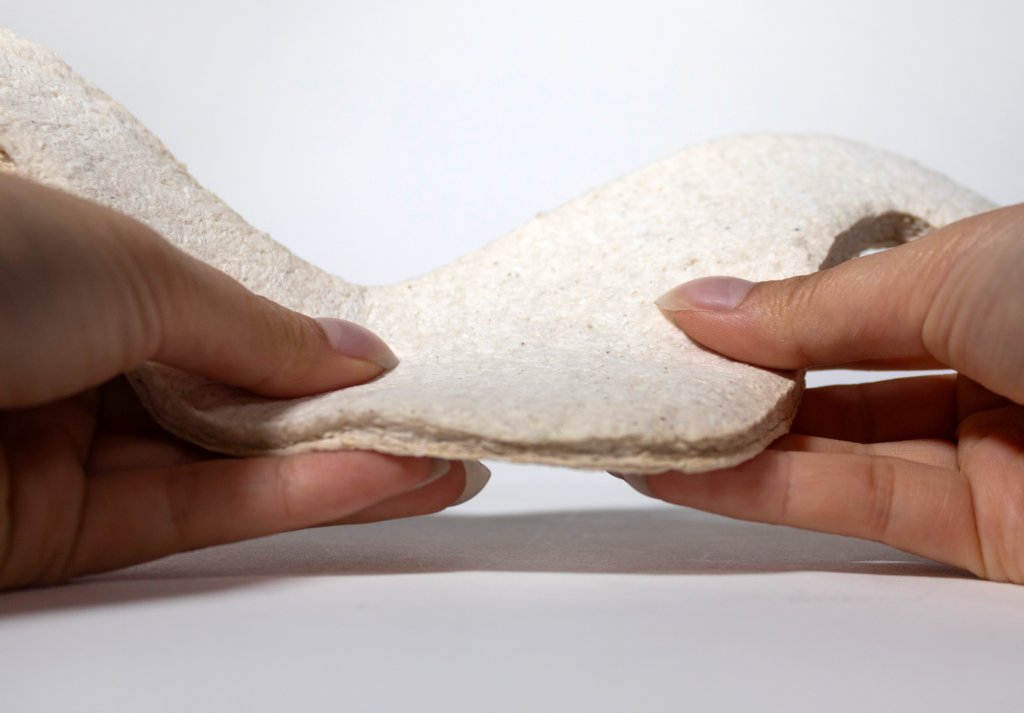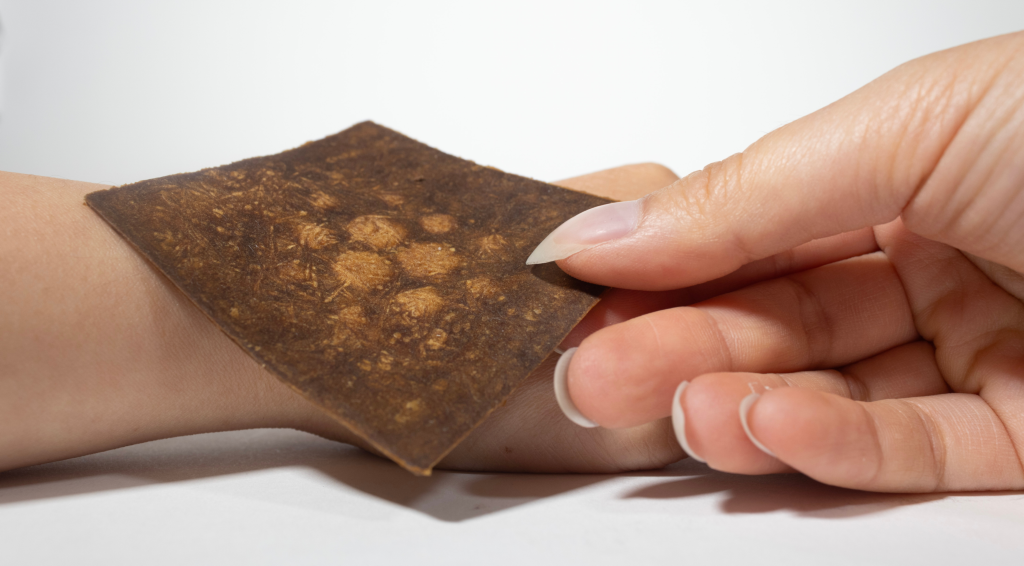Jierui Fang, Stefano Parisi, Elvin Karana
Novel fungal materials can be used as leather alternatives with a broad range of applications to the human form. Imitating conventional textile behaviour, these applications, however, usually retain the same characteristics throughout the breadth of the material, a departure from the dynamic living organism it was created from. Mycelium Skins aimed to bridge this gap by endowing a singular fungal textile with multiple properties, serving the dual function of highlighting its organic origins and reducing material complexity often required to achieve such versatility in a single material. The project was conducted through a Fulbright/Netherlands-America Foundation Open Research Grant to the Netherlands.
Mycelium Skins is a family of artefacts that showcase an adaptable method for creating localised support and flexibility in fungal materials to suit needs in assistive wearables. Diverse fungal species and parts, growth and manufacturing methods, and post-processing techniques were investigated to guide the design and conceptualization of textural patterns and forms that could be varied to meet wellness needs in the palm, wrist, and forearm areas. Two main overarching processes using pure mycelium sources, harvested fruit bodies or slant culture inoculum, were conducted in parallel and informed each other. Semi-structured interviews with participants assessed the influence of material processes, textural patterns, and concept forms on comfort, relevance, and desirability. Participants valued the materials' natural qualities and the potential for varying combinations to suit breathability and temporal needs, informing further generative prototyping.
The outcomes demonstrate a method of designing with a sustainable and versatile biomaterial to connect ways to improve both human and planetary health. These sustainable fungal materials could be layered for different temporal or seasonal needs, formed into custom shapes with differential patterning and properties for specific areas that need more support, and degraded to match material and use life cycles - lending circularity and novel material experiences to people’s every day. This project contributes an added perspective and dialogue between various forms of fungi in material making, both the hidden mycelia and the visible fruiting body. Mycelium Skins uncovers these processes that lend themselves to further exploration in wellness applications.




